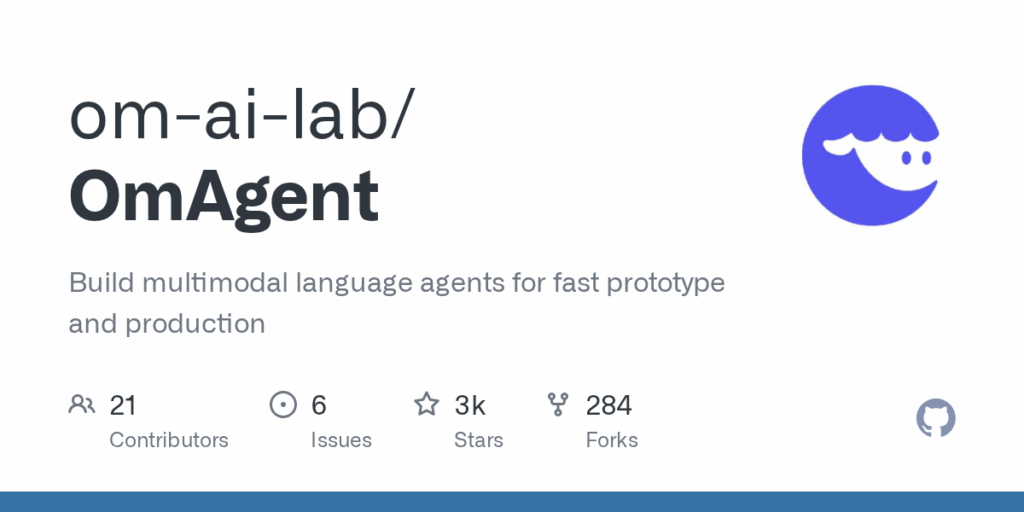OmAgent
Basic Information
OmAgent is a Python library and framework designed to help developers and researchers build multimodal language agents with minimal overhead. It provides a higher-level interface that hides complex engineering details such as worker orchestration, task queues, and node optimization so users can focus on defining agent behavior. The project emphasizes multimodal reasoning by natively supporting vision-language models (VLMs), video processing, audio inputs, and mobile device connections. It includes graph-based workflow orchestration, multiple memory types for contextual reasoning, and a suite of agent algorithms beyond basic LLM prompting. The repo includes example projects like video question answering and a mobile personal assistant, plus tooling for local model deployment using Ollama or LocalAI. Documentation, demos, and configuration patterns (container.yaml) are provided to accelerate prototyping and experiments.








